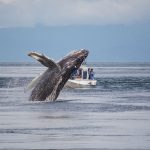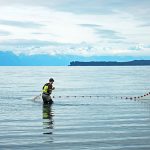Some exciting science detective work is going on in the Aleutian Islands, home to 1,100 miles of remote marine habitat and some of the world’s richest fishing grounds. Because this sensitive region is vulnerable to the introduction of invasive and potentially harmful marine species, Alaska Sea Grant is participating in research to determine the threat level now and into the future. The research is prompted in part by warming ocean temperatures and growing international vessel traffic, including nearly 2,000 cargo carriers that make more than 4,600 transits through Unimak Pass annually, said Melissa Good, Alaska Sea Grant’s Marine Advisory agent in Unalaska.
“Western Alaska is at high risk of invasive species multiplying in our region” Good said. “The conditions are ripe.”
With additional funding from the Smithsonian Environmental Research Center, NOAA Fisheries Habitat Conservation Office and the Smithsonian Global Genome Initiative, two projects are underway: a citizen science Plate Watch program and a collection of Unalaska’s marine invertebrates for DNA analysis. The projects are the result of increased awareness of the Bering Sea’s susceptibility to marine invasive species.







